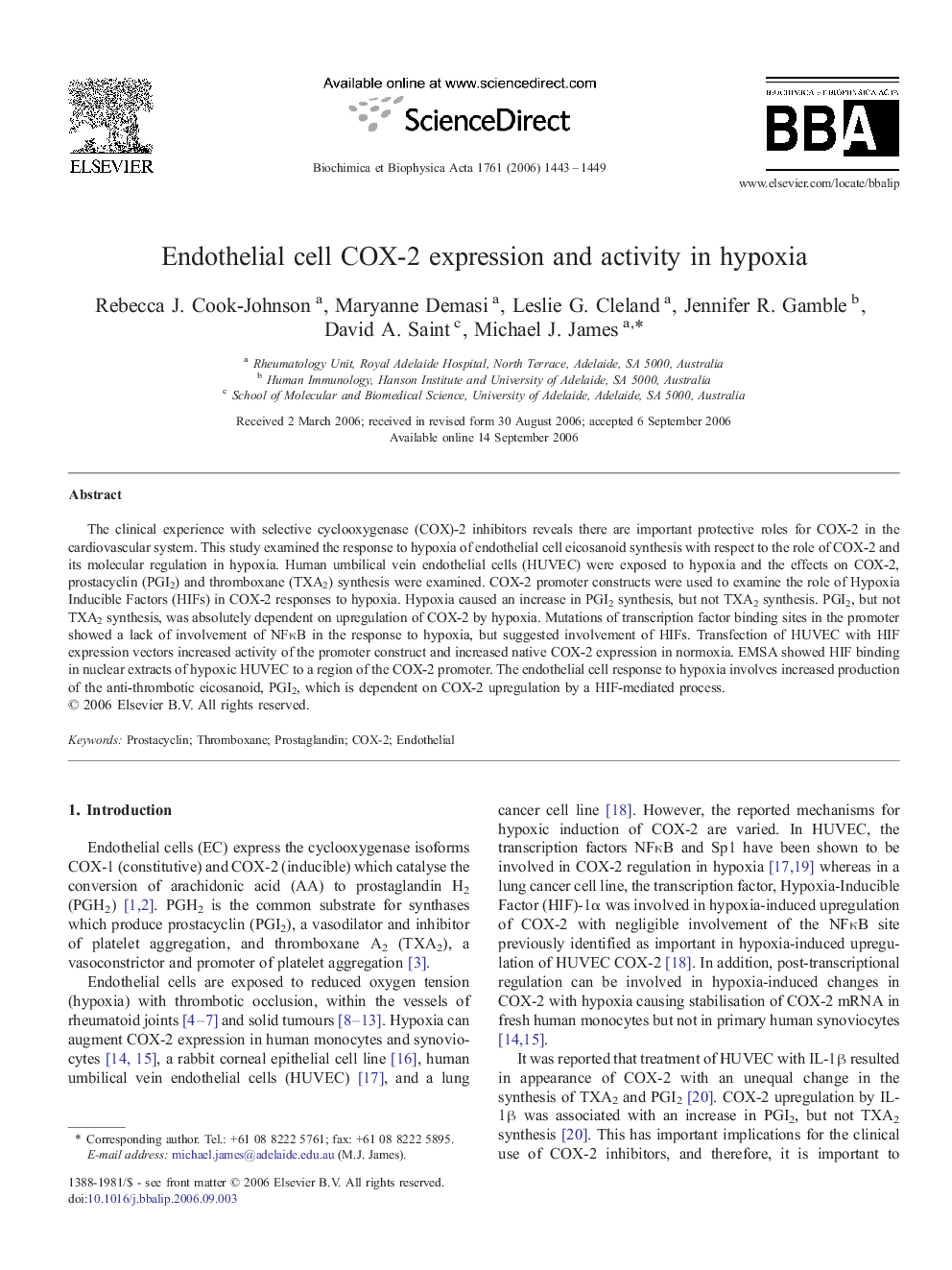| Article ID | Journal | Published Year | Pages | File Type |
|---|---|---|---|---|
| 1950144 | Biochimica et Biophysica Acta (BBA) - Molecular and Cell Biology of Lipids | 2006 | 7 Pages |
The clinical experience with selective cyclooxygenase (COX)-2 inhibitors reveals there are important protective roles for COX-2 in the cardiovascular system. This study examined the response to hypoxia of endothelial cell eicosanoid synthesis with respect to the role of COX-2 and its molecular regulation in hypoxia. Human umbilical vein endothelial cells (HUVEC) were exposed to hypoxia and the effects on COX-2, prostacyclin (PGI2) and thromboxane (TXA2) synthesis were examined. COX-2 promoter constructs were used to examine the role of Hypoxia Inducible Factors (HIFs) in COX-2 responses to hypoxia. Hypoxia caused an increase in PGI2 synthesis, but not TXA2 synthesis. PGI2, but not TXA2 synthesis, was absolutely dependent on upregulation of COX-2 by hypoxia. Mutations of transcription factor binding sites in the promoter showed a lack of involvement of NFκB in the response to hypoxia, but suggested involvement of HIFs. Transfection of HUVEC with HIF expression vectors increased activity of the promoter construct and increased native COX-2 expression in normoxia. EMSA showed HIF binding in nuclear extracts of hypoxic HUVEC to a region of the COX-2 promoter. The endothelial cell response to hypoxia involves increased production of the anti-thrombotic eicosanoid, PGI2, which is dependent on COX-2 upregulation by a HIF-mediated process.
